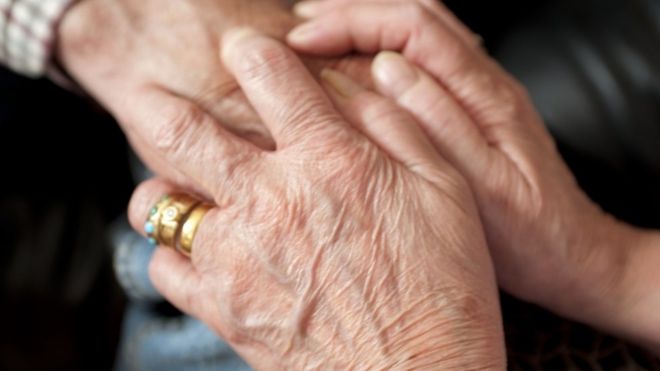Families often charged too much for care, ombudsman says
24 September 2015
24 September 2015

Cost of care
'Impossible situation'

Families are paying too much for care in England "all too often" because of confusing or incorrect information from councils, a report says.
The Local Government Ombudsman said some people were not offered an affordable care option in their area.
"Top-up fees", payable for things such as a bigger room, were often being incorrectly charged, it said.
There was a 19% increase in complaints about social care from August 2014 to July 2015 compared with a year earlier.
The ombudsman received 2,848 complaints during this period, of which 57.5% were upheld.
Find out more about care at the BBC's cost of care website.
Use the BBC's care calculator to find out how much care costs where you live.
There were 2,397 complaints between August 2013 and July 2014 - 52.5% were upheld - and 2,324 between August 2012 and July 2013, of which 52.6% were upheld.
Its report, seen exclusively by BBC Breakfast, says councils should provide information in writing "at the earliest opportunity" that explains the financial implications of social care and top-up fees, so people can make an "informed decision".
It said: "The decision to place a loved one in a care home can be one of the hardest any family has to make, but all too often families are paying too much for their care because they are not getting the correct, timely information."
Those who have assets of less than £14,250 are entitled to have a care home place paid for by their local authority.
Top-up fees are generally charged for those who want additional facilities, such as a bigger room.
But Tony Cryer said he was charged a "top-up fee" after his council reassessed the amount it was willing to pay at his mother's nursing home.
"They'd decided my mum was going to move elsewhere," he said.
"But we couldn't let it happen. We had to pay the difference... we were put in an impossible situation."
The ombudsman ordered the council to pay the fee shortly before Jean Cryer died. The family are still waiting for repayment.
Care England, which represents care homes, said top-up fees were masking a funding crisis in social care, with some of the poorest people and their families being asked to fill holes in the budgets of local authorities.
Professor Martin Green, of Care England, said care should be available "at a cost which the local authority should be happy to pay".
Andrew Kaye, from the charity Independent Age, said confusion over top-up fees was one of the main reasons why people called its helpline.
"Too many people are paying [them] through necessity rather than choice."
Ray James, president of the Association of Directors of Adult Social Services, said there were "probably colleagues in local authorities feeling between a rock and a hard place" as more people were needing care in the face of funding cuts.
"Even where that is the case, we should always make sure that individuals and their families are clear about the information that they need," he said.

